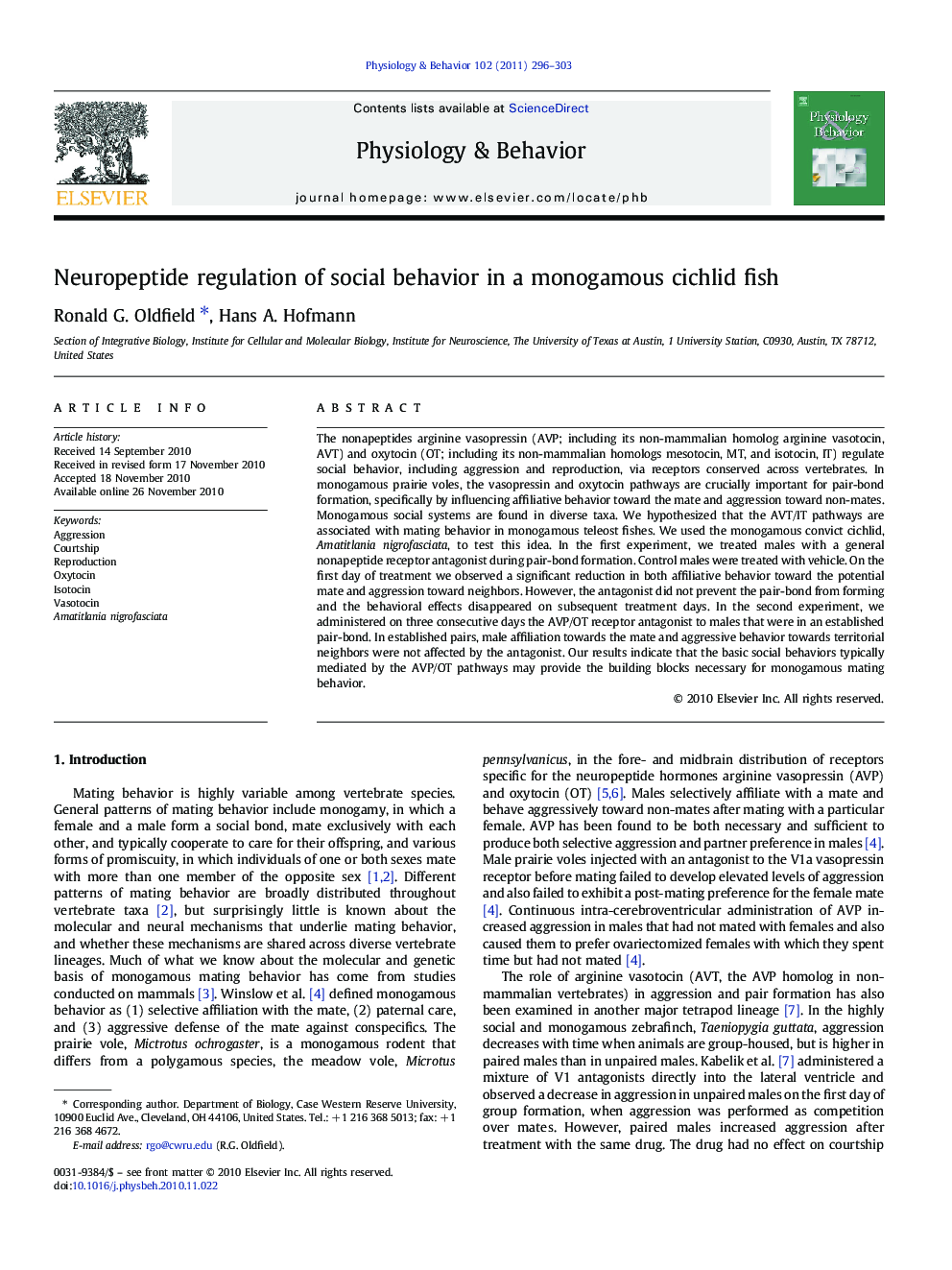| کد مقاله | کد نشریه | سال انتشار | مقاله انگلیسی | نسخه تمام متن |
|---|---|---|---|---|
| 2844839 | 1571207 | 2011 | 8 صفحه PDF | دانلود رایگان |

The nonapeptides arginine vasopressin (AVP; including its non-mammalian homolog arginine vasotocin, AVT) and oxytocin (OT; including its non-mammalian homologs mesotocin, MT, and isotocin, IT) regulate social behavior, including aggression and reproduction, via receptors conserved across vertebrates. In monogamous prairie voles, the vasopressin and oxytocin pathways are crucially important for pair-bond formation, specifically by influencing affiliative behavior toward the mate and aggression toward non-mates. Monogamous social systems are found in diverse taxa. We hypothesized that the AVT/IT pathways are associated with mating behavior in monogamous teleost fishes. We used the monogamous convict cichlid, Amatitlania nigrofasciata, to test this idea. In the first experiment, we treated males with a general nonapeptide receptor antagonist during pair-bond formation. Control males were treated with vehicle. On the first day of treatment we observed a significant reduction in both affiliative behavior toward the potential mate and aggression toward neighbors. However, the antagonist did not prevent the pair-bond from forming and the behavioral effects disappeared on subsequent treatment days. In the second experiment, we administered on three consecutive days the AVP/OT receptor antagonist to males that were in an established pair-bond. In established pairs, male affiliation towards the mate and aggressive behavior towards territorial neighbors were not affected by the antagonist. Our results indicate that the basic social behaviors typically mediated by the AVP/OT pathways may provide the building blocks necessary for monogamous mating behavior.
Research Highlights
► During pair formation AVT/IT receptor antagonist reduced affiliative behavior.
► During pair formation AVT/IT receptor antagonist reduced aggression to neighbors.
► In established pairs AVT/IT receptor antagonist had no effect.
Journal: Physiology & Behavior - Volume 102, Issues 3–4, 1 March 2011, Pages 296–303